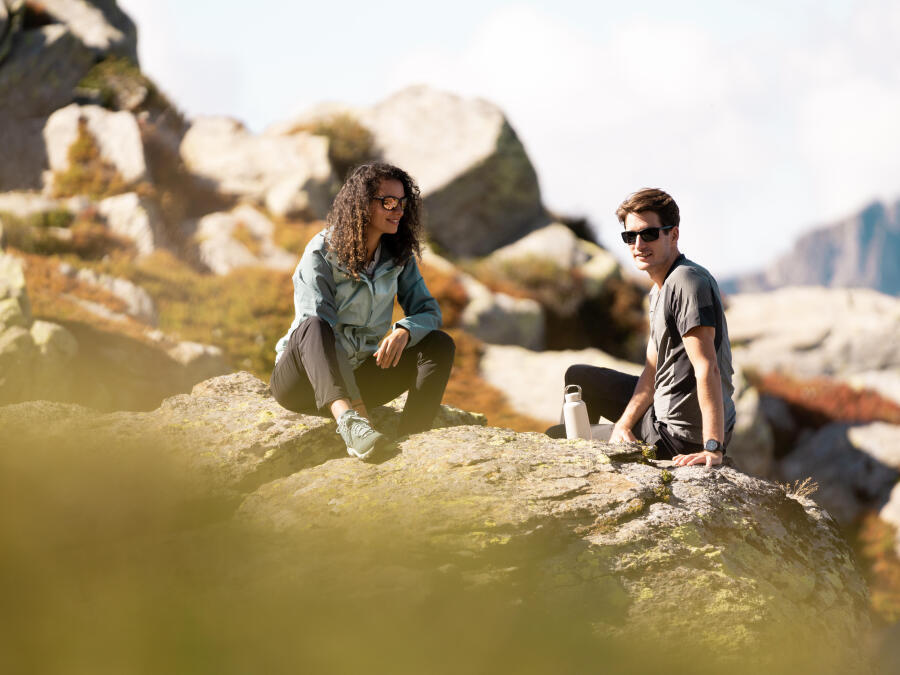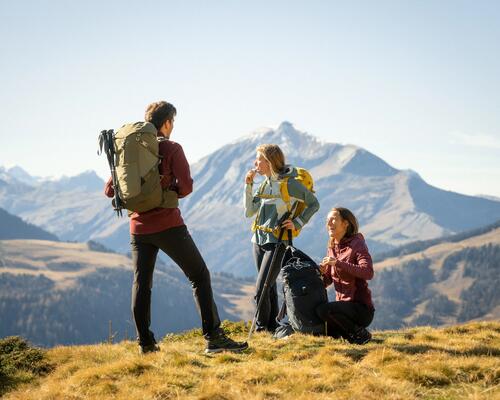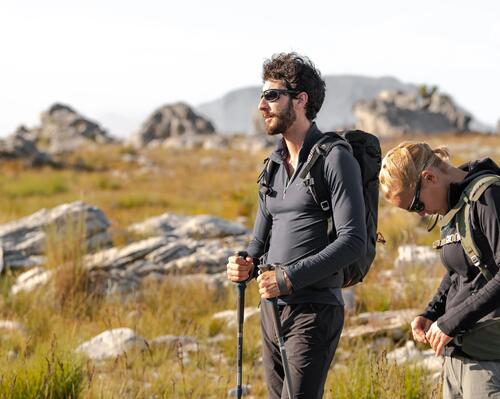Why choose sunglasses with high protection against UV rays?
The main function of sunglasses is to protect your eyes against the sun’s harmful UV rays. This is therefore the first criteria to take into account when you're looking for the best hiking sunglasses. 100% anti-UV treatment (including UVA and UVB) is therefore essential for your hikes or any other outdoor activities as the sun can quickly become your enemy if you're not equipped correctly. By the way, don't mix up tint and UV protection: transparent lenses protect extremely well against UV rays but not against glare... Combine both for hiking!









